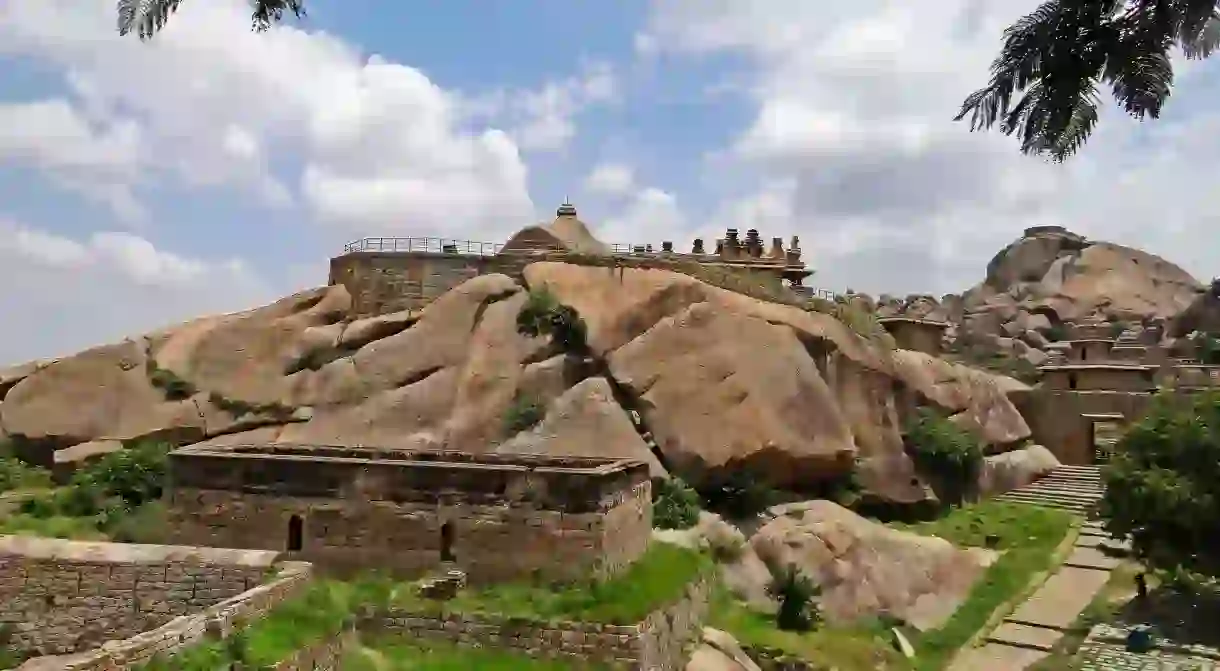The Most Famous Forts You Need to Visit in India

A lot of India’s perceived mysticism is due to its history, since 1st century C.E. India has been a coveted land by many—explorers, traders, and Kings. Those who won battles and annexed territories in India didn’t want to let it go very easily. India is filled magnanimous forts and each tell a tale of the time it was built in. Here are the most famous forts you need to visit in India.
Gwalior Fort
One of the most beautiful forts in the country, Gwalior fort in Madhya Pradesh was probably built in the 8th Century, although the era has not been confirmed yet. The fort has a defense structure and two main palaces—Gujari Mahal and Man Mandir. These 15th-Century palaces were built by Man Singh Tomar, the ruling King at the time.

Golkonda Fort
Golkonda Fort in Hyderabad was built by the South Indian dynasty of Kakatiya as part of their West defense strategy for Kondapalli fort. In the 16th century, the Qutb Shahi dynasty annexed Golkonda and made it their main base. The most precious diamonds that the world has today—Koh-i-Noor, Daria-i-Noor, Hope Diamond, and more were found in Golkonda mines, a reason why the fort is famous.


Mehrangarh Fort
Mehrangarh fort in Jodhpur, Rajasthan was built by the Rathore dynasty in the 15th Century. The strong, imposing structure of the fort says a lot about the rulers who built it once they won Jaipur, Bikaner, and Udaipur. The fort is surrounded by tall, thick walls built to protect intricately carved palaces and temples.


Bidar Fort
Bidar fort in the Bidar district of Karnataka was built by Ahmad Shah Wali Bahman in the 14th Century. The fort rests on low laterite hills at an altitude of 2,200 feet above sea level and it is made of red laterite stone.

Warangal Fort
The beautiful carvings on what’s left of the Warangal fort will make your jaws drop. It is not known when Warangal fort in Telangana was built, but it was under the rule of Yadava Kings until the 12th Century, when the Kakatiya dynasty took over, who then lost it to the Sultans.

Dansborg Fort
The Dansborg fort in Tharangambadi was built by the Danes after they signed a trade deal with the Tanjavore King at the time. A part of the deal was to build a “stone house” that was to become the center of spice trade. The fort was once second largest in the list of Scandinavian forts! The Danish royalty has played a significant role in renovating the fort that was hit due to a tsunami.

Chittorgarh Fort
Chittorgarh fort was an ill-destined one. Every army that fought from the fort in a war never won. After every defeat, the women and children were believed to have committed self-immolation.

Amber Fort
The majestic amber fort made of red sandstone and marble was built by Raja Man Singh of the Rajputs, on the remnants of an earlier structure that was built by the Kachwaha dynasty. The fort has four main sections, and the south section has Raja Man Singh’s palace, the oldest part of this fort, which took 25 years to finish.

Jaisalmer Fort
The giant yellow walls of fort Jaisalmer, made of yellow sandstone, gives the structure a golden hue, a reason it is popularly called sonar quila (the golden fort). The fort was built in the 12th century by Rajput King Raja Jaisal. The outer wall of the fort has three layers. It is also one of the fully preserved fortified cities in the world!

Red Fort
The Red fort was the Mughal dynasty’s home, office, and trade center for over 200 years. It was built by Shah Jahan in the 17th Century, when he moved his base from Agra and called the town Shahjanabad (now Delhi). The Red fort was designed by the same Persian architect who designed the Taj Mahal.














